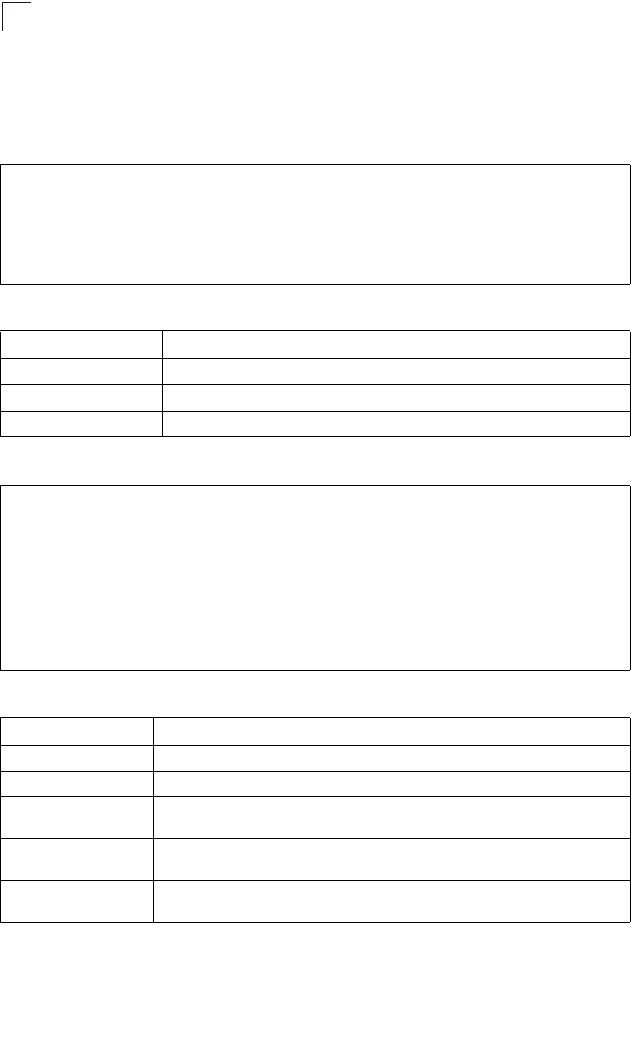
Command Line Interface
4-48
4
Example
The following example shows that system logging is enabled, the message level for
flash memory is “errors” (i.e., default level 3 - 0), and the message level for RAM is
“debugging” (i.e., default level 7 - 0).
The following example displays settings for the trap function.
Related Commands
show logging sendmail (4-52)
Console#show logging flash
Syslog logging: Enabled
History logging in FLASH: level errors
Console#show logging ram
Syslog logging: Enabled
History logging in RAM: level debugging
Console#
Table 4-19 show logging flash/ram - display description
Field Description
Syslog logging Shows if system logging has been enabled via the logging on command.
History logging in FLASH The message level(s) reported based on the logging history command.
History logging in RAM The message level(s) reported based on the logging history command.
Console#show logging trap
Syslog logging: Enable
REMOTELOG status: disable
REMOTELOG facility type: local use 7
REMOTELOG level type: Debugging messages
REMOTELOG server IP address: 1.2.3.4
REMOTELOG server IP address: 0.0.0.0
REMOTELOG server IP address: 0.0.0.0
REMOTELOG server IP address: 0.0.0.0
REMOTELOG server IP address: 0.0.0.0
Console#
Table 4-20 show logging trap - display description
Field Description
Syslog logging Shows if system logging has been enabled via the logging on command.
REMOTELOG status Shows if remote logging has been enabled via the logging trap command.
REMOTELOG
facility type
The facility type for remote logging of syslog messages as specified in the
logging facility command.
REMOTELOG level type The severity threshold for syslog messages sent to a remote server as specified
in the logging trap command.
REMOTELOG
server IP address
The address of syslog servers as specified in the logging host command.


















